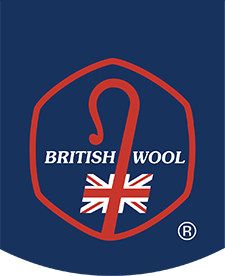Meet Head of Wool Sales- Richard Alderson
What does your role as Head of Wool Sales entail?
My main role at British Wool is the link between our depots, where the wool is received and graded through to our auction buyers. I work closely with our quality control team to ensure the wool is graded to the high standard expected by the buyers as this is essential to maximise the price achieved. I have regular discussions with both our UK and overseas buyers to ensure the wool they buy meets expected standards and that the flow of wool through our auctions is meeting any demand they may see.
A lot of work goes into preparing the auction from building it through to pricing ready for auction day itself - along with my colleague Jen, we would run the auction. I also work with any potential new buyers explaining our grades and advising which types would fit their specific requirements.
How long have you been at British Wool and worked in the wool industry?
I joined British Wool in 2018 but have worked in the wool industry for 40 years. I spent the first 30 years of my wool journey working for wool merchants and over those years I bought millions of kilos at the very same auctions I now run. I also spent the best part of 18 months working at a scouring plant overseeing production and quality.
How is the current market in terms of prices and demand?
Demand for British wool from the very 1st auction of the season in early July has been fantastic, we have seen virtually full clearances in all 10 auctions held so far in the 2024/25 season. The average price achieved at auction this season has increased by nearly 25%. The nearest comparable market to the UK is New Zealand which historically used to sell at a premium over British but in more recent seasons the price of UK wool has tracked New Zealand wool and vice versa.
We are seeing the highest prices at auction since 2018, why is this?
The simplistic answer would be demand meeting and outstripping supply, and whilst this is the major factor, it’s how demand has increased that has made the difference. British Wool has worked tirelessly with many manufacturers and retailers to encourage them to either increase the amount of British wool they use in the case of manufacturers and for retail to insist that the products they sell are made from or include British wool. This demand then flows back to the auction buyers increasing the competitiveness in the auction and making British wool less of a traded commodity as buyers are committed to using British wool and can't substitute for cheaper options.
There has also been a shift albeit slow from consumers trying to move away from fast fashion made from planet-damaging man-made fibres onto more sustainable environmentally friendly woollen goods.
I must add that like most of the world, sheep numbers in the UK have fallen, meaning less wool is available and this cannot be ignored as a factor.
How important is the auction system in maximizing the price of wool for our members?
Since the creation of the British Wool Marketing Board in 1950 the wool has always been sold at auction, and this is still the best vehicle for maximising the price of the wool. The auctions have moved from being originally open cry to becoming electronic in the late 90’s and since 2020 and the outbreak of Covid they have been held online. By holding the sale online this takes away the need for the buyers to attend the sale in person at our Head Office in Bradford. It gives them the freedom to log on from, in principle anywhere in the world on a PC, tablet, or even mobile phone. Since going online our registered buyers have attended the auctions remotely which has helped the auctions become much more competitive.
Are there any exciting projects that you're working on at the moment?
We have projects running all the time and far too many to list, a large number are in the traditional applications where wool has always been used such as carpets, home furnishing and knitwear but we don’t dismiss any ideas put to us no matter how far off the wall they may seem. Wool, particularly British wool is a very versatile fibre and shouldn’t be pigeon-holed into a limited number of applications. My biggest and constantly ongoing project is to increase participants in our auctions which will only help maximise returns to our members.
Back to Blogs

